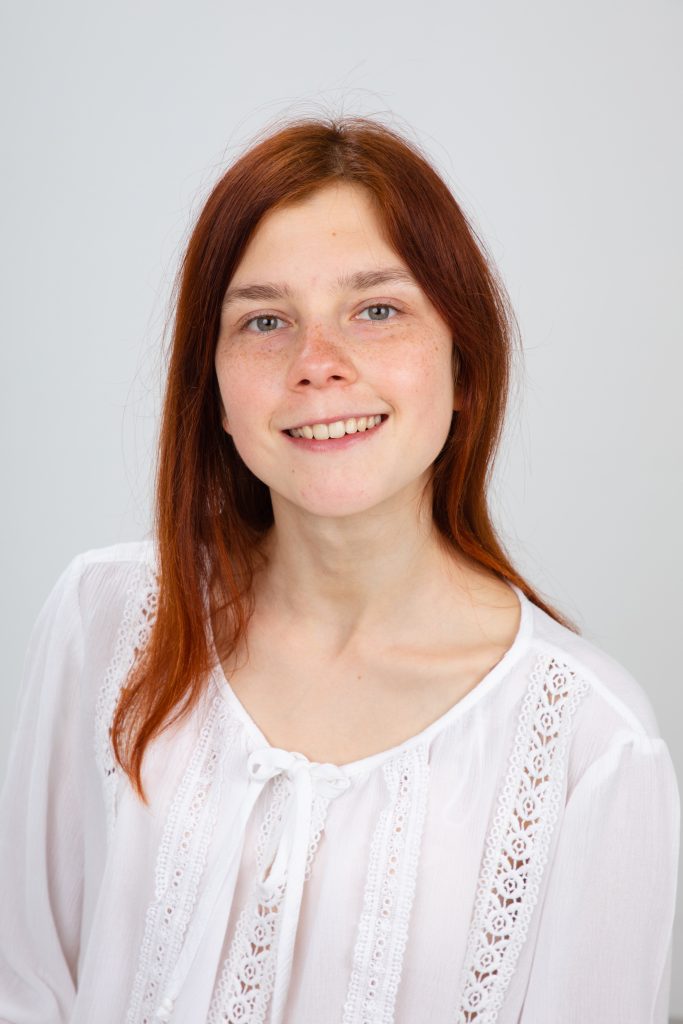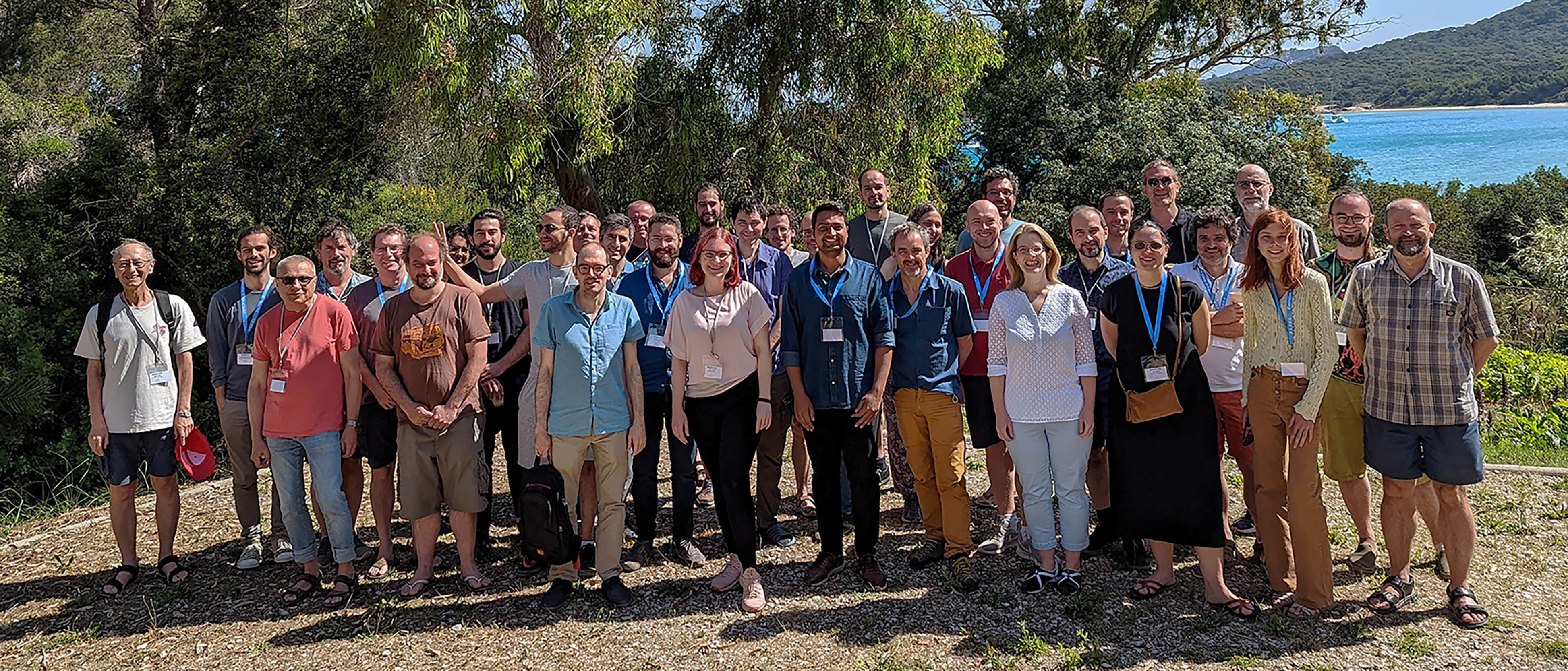Computer Science: A Problem Solver’s Paradise
Viktoriia Korchemna, a prae-doc researcher at the Institute of Logic and Computation of TU Wien and winner of the 2018 Helmut Veith Stipend, provides an insight into her life as a young computer scientist.
Studying Logic and Computation in Austria wasn’t Viktoriias plan, “it just happened”. When finishing her bachelor studies of theoretical mathematics at Taras Shevchenko National University of Kyiv, she was actively searching for a scholarship that would allow her to continue her studies. She reports that such scholarships are quite common in Ukraine, but less so in other European countries. In the end, it was her mother, a computer programmer, who came across the Helmut Veith Stipend offered by the Vienna Center for Logic and Algorithms (VCLA) at TU Wien, the technical university of Vienna. This stipend is awarded annually to exceptionally talented and motivated female students in the field of computer science from outside of Austria; it is co-financed by TU Wien and the Wolfgang Pauli Institute (WPI).
During Viktoriia’s interview with the stipend committee in Vienna, it became clear that the MSc program Logic and Computation was the perfect fit. Initially, she had pictured this field of study as having a focus on practical implementations, when in fact it centers on finding theoretically well-founded solutions to computational problems. At school, Viktoriia had entered mathematical competitions – this is how she came to love problem solving. “I’m more interested in the theoretical part of computer science. I rarely code algorithms; I just prove that a particular algorithmic idea is correct and efficient, and the results can then be used by others, e.g., to speed up network learning,” she says. In addition to her master’s studies at TU Wien, she also took classes at the Faculty of Mathematics at the University of Vienna. Partly, she wanted to make sure that she had made the right decision in choosing Logic and Computation over Mathematics, and now she is certain of it.
Having obtained her master’s degree with excellent grades, Viktoriia is now a PhD student at the Algorithms and Complexity Group of TU Wien. What stands out in her résumé is the fact that within her first year, she has already published in the proceedings of the two most renowned conferences in Machine Learning: Neural Information Processing Systems (NeurIPS) and the International Conference on Machine Learning (ICML). In fact, her NeurIPS paper The Complexity of Bayesian Network Learning: Revisiting the Superstructure[i] (co-authored with her supervisor Robert Ganian) was among the fewer than 1% of submissions to be accepted for a full-length oral presentation at the conference. While this paper was based on her MSc and PhD studies, the idea for the ICML paper emerged in the course of a research visit of colleague Karolina Okrasa. Essentially, Viktoriia was part of a team that researched the best way to efficiently cluster a set of data points when some of the data is not known (The Complexity of k-Means Clustering when Little is Known[ii]). “The motivation for these algorithms comes from image recognition or recommender systems – imagine, for instance, how streaming services suggest shows to viewers,” Viktoriia explains. ICML took place in Baltimore, but unfortunately, the Ukrainian scientist wasn’t able to attend in person due to visa issues.
Viktoriia describes her PhD studies at TU Wien as fun, interactive, and team-oriented, thereby contradicting the common assumption that computer scientists spend most of their time alone in front of a computer. She observes that in her field, there is an abundance of problems that need solving – you don’t need to look for them, but instead learn about them at conferences, workshops, or during research visits. “It is not always necessary to have in-depth knowledge of a problem, at least not at first. The lack of prior knowledge does not stop us from doing our job,” she observes. For the paper on k-means clustering, it was a colleague who came up with the main idea, whereas Viktoriia sees her contribution in finding a solution to a problem with an algorithm that they had devised. “We were on the verge of abandoning the algorithm and moving on, when unexpectedly, I had an idea of how it could be fixed.”
The young researcher is surprised to learn about the scarcity of women in STEM disciplines in Austria and reports that in Ukraine, there is an even distribution of genders (even though the majority of her teachers were male). It was her high school teacher Svitlana Kushnir who sparked her interest in mathematics and logics; Viktoriia describes her as an energetic person who prepared her students for mathematical competitions and created a pleasant atmosphere for problem solving. During her studies in Kiev, Oksana Bezushchak, a researcher who worked in university administration, saw her interest in science and greatly supported her, e.g., by providing her with a room where she could study undisturbed at any time, away from the noise of the dormitory. In Vienna, Anna Prianichnikova, the coordinator of the Helmut Veith stipend, helped Viktoriia organize the temporal accommodation of her family in Viktoriia’s home in Vienna after the Russian invasion of Ukraine in 2022 (the family moved back after four months, but one of Viktoriia’s younger brothers continues to live in Vienna and goes to school there).
In discussing the difficulties that prominent women in science (such as Marie Sklodowska Curie or Ada Lovelace) were faced with, Viktoriia mentions Sofia Kovalevskaya, a Russian mathematician who lived in the 19th century and became the first female mathematics professor to hold her own lectures. Reportedly, Kovalevskaya entered into a marriage of convenience in order to be able to travel abroad, and her application to university was almost rejected by a professor who feared that he would be “ruining her life”, by which he meant that her research might keep her from starting a family.
In her free time, Viktoriia likes to paint with oil or chalk (“something that I can erase or paint over”) and go hiking. Despite having lived in Austria for three years, she does not speak German, as she feels that the environment at university is very international and all conversations are held in English. Moreover, Viktoriia doesn’t know where her future will take her, and she is open to living and working in other countries such as Norway.
(written by Andrea Hackl)
About the Helmut Veith Stipend
The Helmut Veith Stipend is awarded annually to exceptionally talented and motivated female students in the field of computer science who pursue (or plan to pursue) one of the master’s programs in Computer Science at TU Wien taught in English and have (or have the interest to develop) a solid mathematical and technical background in at least one of the areas in which Austrian scientist Helmut Veith worked.
The Helmut Veith Stipend is dedicated to the memory of Helmut Veith (1971-2016), an outstanding computer scientist who worked in the fields of logic in computer science, computer-aided verification, software engineering, and computer security. Helmut Veith, who tragically passed away in March 2016, was a strong advocate and mentor for women in computer science.
[i] Robert Ganian, Viktoriia Korchemna:
The Complexity of Bayesian Network Learning: Revisiting the Superstructure. NeurIPS 2021: 430-442
[ii] Robert Ganian, Thekla Hamm, Viktoriia Korchemna, Karolina Okrasa, Kirill Simonov:
The Complexity of k-Means Clustering when Little is Known. ICML 2022: 6960-6987


